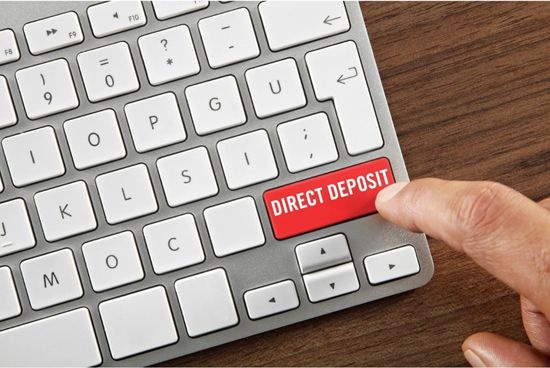Direct Deposit is convenient for people to receive their wages and other payments. But when does Direct Deposit hit? It's important to understand how Direct Deposit works and the timing of when it can hit your account so that you can plan your finances accordingly. In this blog post, we will cover the process of Direct Deposit and explain when you can expect your Direct Deposit to hit your bank account.
How Direct Deposit Works
Direct deposit is a method of electronically transferring money from one account to another. It is one of the most convenient ways to receive your paychecks, benefits, or other payments. With direct deposit, the sender sends the money directly to the recipient's bank account, eliminating the need to wait for a check in the mail.
To set up direct deposit, you provide your bank account information to your employer or whoever is sending you the funds. This can be done through an online portal, a form you sign, or by giving the person or organization sending you money a voided check.
Once your direct deposit information is on file, the money is electronically transferred into your bank account each time a payment is due. This process usually takes a day or two, depending on when and how the money was sent. The benefit of direct deposit is that your money is usually available in your bank account much sooner than if you had to wait for a check in the mail.
With direct deposit, there is no worry about checks getting lost in the mail or stolen. Your money is also available almost immediately, instead of having to wait for the check to clear. All of these factors make a direct deposit one of the most convenient and secure methods of transferring money.
When Does Direct Deposit Hit?
Direct deposit is one of the most convenient and fastest options when it comes to receiving your paycheck. But when exactly does direct deposit hit your account?
The answer depends on a few factors, including the type of account you have, the day of the week, and your employer's policies. Generally speaking, direct deposits typically arrive on the same day each pay period — usually every two weeks — or within one to two days after that. However, depending on when your employer processes the payroll, you may receive your funds earlier or later.
For example, if you are paid on a Friday and your employer sends the funds to your bank the same day, the money should be available in your account that evening. However, if they wait until the next day to send it, the funds won’t be available until Saturday night or Sunday morning.
If you don't receive your direct deposit by the expected time, contact your employer to inquire about any delays. They should be able to provide an explanation. It could be as simple as an error in entering your banking information or a processing delay from their side.
Overall, when you sign up for direct deposit, make sure you understand how and when your money will arrive in your account. That way, you can plan ahead and ensure you have access to your funds when you need them.
Tips for Getting Your Direct Deposit Quicker
Direct deposit is a great way to get your pay quickly and reliably, but sometimes it can take a few days for it to show up in your bank account. If you need your direct deposit money faster, there are some tips you can follow to make sure it hits your account as soon as possible.
Submit Your Direct Deposit Authorization Form Quickly: Once you have received the authorization form from your employer, be sure to fill it out and submit it back as soon as possible. This will ensure that your direct deposit is set up and ready to go when payday comes.- Provide All Required Information: When filling out your direct deposit form, be sure to double check all of the information that you enter. Make sure that you include your full name, routing number, and account number correctly. Any errors here can lead to delays in processing your direct deposit.
- Contact Your Bank or Employer: If your direct deposit has not been credited to your account after a few days, it may be helpful to contact either your employer or your bank directly. They may be able to offer more insight on why your direct deposit is delayed.
- Sign Up for Direct Deposit Alerts: Many banks now offer direct deposit alerts which notify you when the money has been deposited into your account. This way, you can keep an eye on your bank balance without having to constantly check it yourself.
Following these tips can help ensure that your direct deposit is processed quickly and efficiently so that you can get access to your funds as soon as possible.


No comments yet